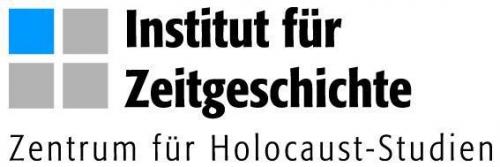The Holocaust in the Borderlands: Interethnic Relations and the Dynamics of Violence in Occupied Eastern Europe

International Workshop
The Holocaust in the Borderlands: Interethnic Relations and the Dynamics of Violence in Occupied Eastern Europe, Munich, 7-9 February 2018
The Holocaust, though initiated by the Third Reich, was by nature a transnational phenomenon: the majority of its victims came from outside Nazi Germany, and its bloodiest sites of genocide lay beyond Germany’s borders. During World War II, Europe’s contested multiethnic borderlands in particular saw unprecedented upsurges in violence against Jews, Roma, and other persecuted minorities. From the Baltic States to Transnistria to the Serbian Banat, Axis occupational authorities worked in conjunction with local populations to persecute, dispossess, deport, and murder millions. In this process, occupiers not only relied on pre-existing local ethnic and national movements and conflicts; they also spurred violence, which profoundly redefined notions of national, ethnic, and social belonging.
As recent research has shown, the Second World War, Nazi Germany’s occupational policies, and existing and shifting dynamics of local interethnic relations were crucial to the distinct unfolding of the Holocaust in different borderlands. This workshop sets out to explore this topic further and more systematically. It aims to bring together novel and critical insights on the borderlands of Eastern, Central, and Southeastern Europe and the growing body of research on the dynamics of violence in the wider region. By placing the Shoah into larger contexts of different military occupations and interethnic conflicts during World War II, this workshop seeks to problematize the relationship between state structures and popular mobilization — perspectives “from above” and “from below” — in the unfolding of Holocaust violence. We are particularly interested in papers dealing with the status and role of ethnic Germans (“Volksdeutsche”) in relation to other groups.
What was the effect of shifting borders and/or pre-existing loyalties on the dynamics of violence in the borderlands? How did the experience of violence and occupation reshape interethnic relations and other social relationships in these regions? Can patterns of behavior be identified across the borderlands of Eastern, Central, and Southeastern Europe?
Ultimately, this workshop aims at gathering an unprecedented range of regional, transnational, and multiscalar approaches to the Holocaust in Eastern, Central, and Southeastern Europe in order to create a comparative basis for the study of the Holocaust under different occupational regimes, and explore the potential of a borderland approach to the study of the Holocaust.
Proposed research topics include, but are not limited to:
-
Interethnic relations and the rise of antisemitism in Eastern, Central, and Southeastern Europe’s borderlands during the interwar period and World War II
-
Definitions, theoretical and conceptual approaches to the study of ethnicity, interethnic relations, and borderlands
-
The specificity of multiethnic borderlands and the dynamics of (Holocaust) violence
-
Comparative perspectives on Holocaust violence in different borderland regions
-
The role of minorities such as the “Volksdeutsche” (ethnic Germans) in Nazi organizations, military formations (Wehrmacht, Waffen-SS), concentration camps, and as the perpetrators and bystanders of local antisemitic violence
-
Participation in Holocaust atrocities by non-German minorities; questions and conceptualizations of resistance/collaboration with Nazi authorities
-
Multiethnic societies under occupation from the perspective of so-called bystanders, perpetrators, and victims
-
Postwar relations between Jewish survivors and other minorities (German expellees, DPs, new/remaining borderland populations)
-
Memory of interethnic relations and postwar narratives of the Holocaust among (former) borderland inhabitants, and their relationship to national historiographies
Download the call and newsletter here
To Apply
Applicants should send a short biography (max. 200 words), as well as the title and abstract (no more than 350 words) of their paper to Katarina Kezeric (kezeric@ifz-muenchen.de) by May 31, 2017.
Invited participants will be notified of their acceptance by the end of July 2017.
Further Information
Presentations should be approximately twenty minutes long. The language of the conference is English. The conference will take place in Munich, Germany. Travel and accommodation costs for invited participants will be paid for by the organizers.
Organizers
Dr. Gaëlle Fisher (fisher@ifz-muenchen.de)
Dr. Caroline Mezger (mezger@ifz-muenchen.de)
Center for Holocaust Studies at the Institute for Contemporary History (Institut für Zeitgeschichte), Munich